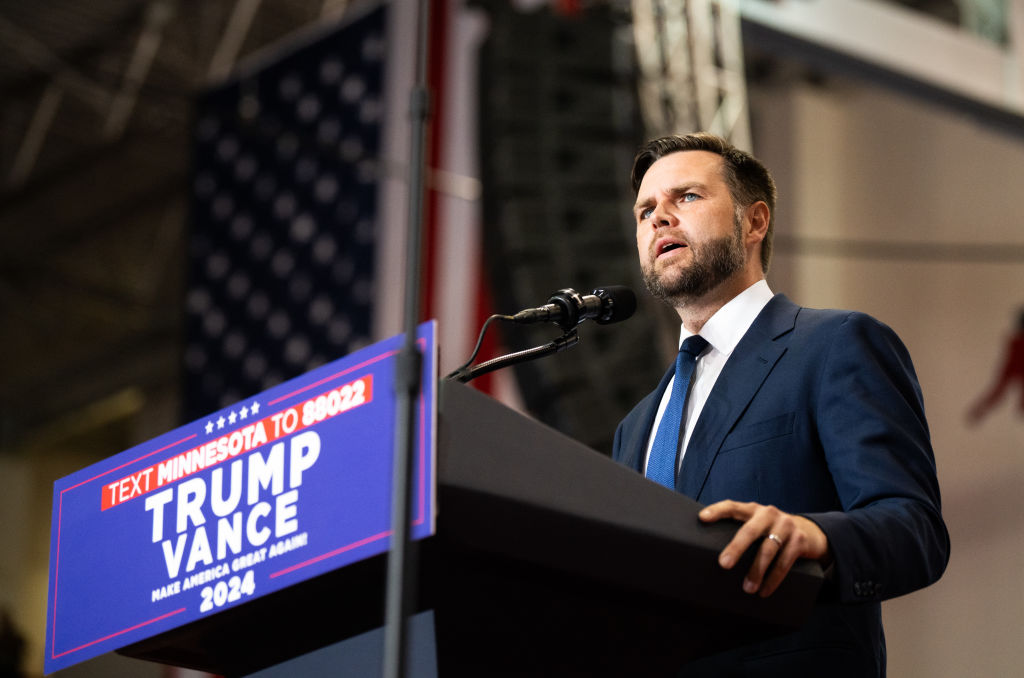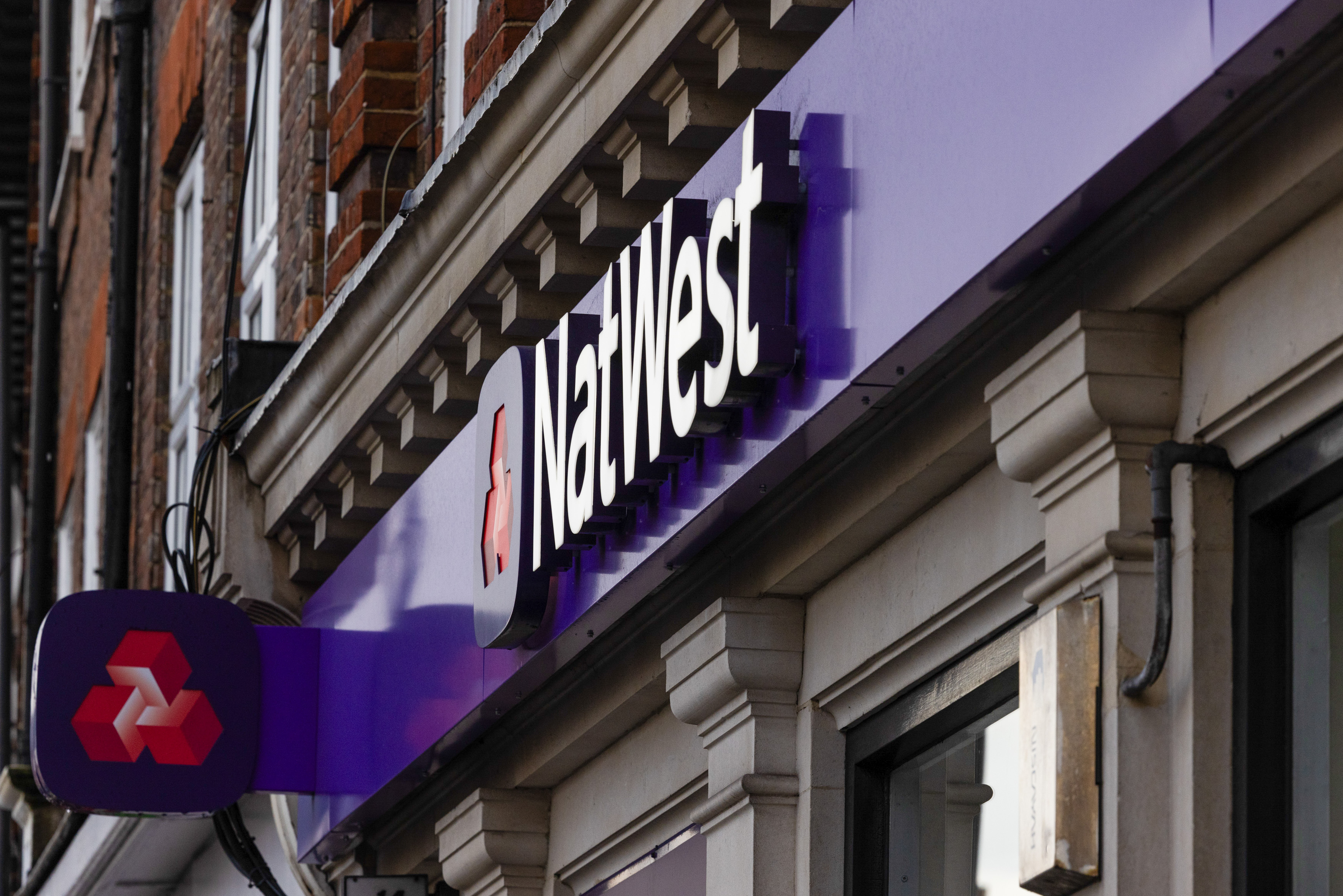How J.D. Vance became Donald Trump's running mate
Trump’s running mate, J.D. Vance, has a knack for adapting and playing any role to perfection, even as Trump's right-hand man

Get the latest financial news, insights and expert analysis from our award-winning MoneyWeek team, to help you understand what really matters when it comes to your finances.
You are now subscribed
Your newsletter sign-up was successful
Want to add more newsletters?

Twice daily
MoneyWeek
Get the latest financial news, insights and expert analysis from our award-winning MoneyWeek team, to help you understand what really matters when it comes to your finances.

Four times a week
Look After My Bills
Sign up to our free money-saving newsletter, filled with the latest news and expert advice to help you find the best tips and deals for managing your bills. Start saving today!
When Usha Vance introduced her husband J.D. Vance as Donald Trump’s running mate at the Republican National Convention – in a speech which he later said had him “crying back stage” – she described him as a “meat and potatoes kind of guy” and praised him for embracing her vegetarian diet. It was an affectionate, but telling observation, says The Wall Street Journal. Perhaps the Ohio senator’s greatest strength is his adaptability and ability to play any role convincingly. “He can sound like a Silicon Valley venture capitalist one day” and a rabid populist the next. When searching for a running mate, Trump often mused: “Where is my Cary Grant?”. In the suave, smart, articulate Vance, he has found him.
Vance was a “brilliant choice”, says Samuel Popkin, a political scientist at the University of California. He has the skill of “making an opportunistic move seem like righteous change” – not least in his changing attitude to Trump himself. Before the 2016 presidential election, Vance called Trump “noxious”, “reprehensible” and suggested he “might be America’s Hitler”. Now, he “arguably outdoes Trump” in his demagoguery, says Ryan Bourne in The Times. And when it comes to economic policy, Vance has evolved to become “more Trumpy than Trump himself” in terms of honing his “blue-collar appeal”. The former president might have steered the US towards protectionism on trade and immigration, but at least he “upheld free-market principles”. Vance, by contrast, champions an “aggressively interventionist policy”, arguing that Republicans should embrace trade unions, raise the minimum wage, break up Big Tech, block mergers, tax corporations that outsource jobs and use state power to punish woke companies.
Although Vance will almost certainly trade on his heartland roots on the campaign trail, he has largely left his early life “in the rear-view” mirror, says The Observer. His story began in Middletown, Ohio – a steel mill entrepôt, which once drew thousands of economic migrants from across the Appalachian region – including his Kentucky-born grandparents – before suffering a devastating decline in the 1970s. “Our homes are a chaotic mess,” wrote Vance in Hillbilly Elegy, the bestselling 2016 memoir that put him on the political map – chronicling his mother’s struggle with drug addiction and domestic instability.
MoneyWeek
Subscribe to MoneyWeek today and get your first six magazine issues absolutely FREE

Sign up to Money Morning
Don't miss the latest investment and personal finances news, market analysis, plus money-saving tips with our free twice-daily newsletter
Don't miss the latest investment and personal finances news, market analysis, plus money-saving tips with our free twice-daily newsletter
He credits his grandmother for raising him and pushing him to work hard at school. Vance viewed joining the United States Marine Corps as an escape from “the anger and resentment harboured by everyone around me” and served as “a combat journalist” from 2003 to 2007, taking in a six-month deployment to Iraq. He went on to study political science and philosophy at Ohio State University, later winning a scholarship to Yale Law School where he fell in love with his classmate Usha Chilukuri. They married a year after graduation.
The rise of J.D. Vance
The most influential figure in Vance’s rise was Peter Thiel, says the FT – the libertarian PayPal founder and venture capitalist who, in 2016, was one of the few in Silicon Valley openly to endorse Trump. When Thiel gave a talk at Yale in 2011, Vance was transfixed. He went on to join Thiel’s firm, Mithril Capital, crediting his mentor both with an introduction to venture capital and his conversion to Catholicism. When Vance came to found his own firm, he named it Narya Capital “in a nod to Thiel’s penchant for companies with J.R.R. Tolkien-inspired monikers”. When Vance decided to run for the US Senate in 2021, Thiel was his biggest donor. The following year he introduced Vance to Trump at his Palm Beach club, Mar-a-Lago. And if Vance looks like one of Trump’s sons, that’s no accident, says Dennis Altman on The Conversation. “For Trump, politics is an extension of the family business and Vance has cleverly positioned himself as a de facto son.”
This article was first published in MoneyWeek's magazine. Enjoy exclusive early access to news, opinion and analysis from our team of financial experts with a MoneyWeek subscription.
Get the latest financial news, insights and expert analysis from our award-winning MoneyWeek team, to help you understand what really matters when it comes to your finances.
Jane writes profiles for MoneyWeek and is city editor of The Week. A former British Society of Magazine Editors (BSME) editor of the year, she cut her teeth in journalism editing The Daily Telegraph’s Letters page and writing gossip for the London Evening Standard – while contributing to a kaleidoscopic range of business magazines including Personnel Today, Edge, Microscope, Computing, PC Business World, and Business & Finance.
-
 BBC TV licence fee hike confirmed: can you reduce how much you pay?
BBC TV licence fee hike confirmed: can you reduce how much you pay?The cost of a TV licence fee is set to rise by over 3%, but there are ways to reduce the bill.
-
 NatWest to close 32 more bank branches – see the full list
NatWest to close 32 more bank branches – see the full listNatWest is closing 32 branches in 2026 and 2027. Will your local area be affected?
-
 "Botched" Brexit: should Britain rejoin the EU?
"Botched" Brexit: should Britain rejoin the EU?Brexit did not go perfectly nor disastrously. It’s not worth continuing the fight over the issue, says Julian Jessop
-
 Ayatollah Ali Khamenei: Iran’s underestimated chief cleric
Ayatollah Ali Khamenei: Iran’s underestimated chief clericAyatollah Ali Khamenei is the Iranian regime’s great survivor portraying himself as a humble religious man while presiding over an international business empire
-
 'AI is the real deal – it will change our world in more ways than we can imagine'
'AI is the real deal – it will change our world in more ways than we can imagine'Interview Rob Arnott of Research Affiliates talks to Andrew Van Sickle about the AI bubble, the impact of tariffs on inflation and the outlook for gold and China
-
 Tony Blair's terrible legacy sees Britain still suffering
Tony Blair's terrible legacy sees Britain still sufferingOpinion Max King highlights ten ways in which Tony Blair's government sowed the seeds of Britain’s subsequent poor performance and many of its current problems
-
 How a dovish Federal Reserve could affect you
How a dovish Federal Reserve could affect youTrump’s pick for the US Federal Reserve is not so much of a yes-man as his rival, but interest rates will still come down quickly, says Cris Sholto Heaton
-
 New Federal Reserve chair Kevin Warsh has his work cut out
New Federal Reserve chair Kevin Warsh has his work cut outOpinion Kevin Warsh must make it clear that he, not Trump, is in charge at the Fed. If he doesn't, the US dollar and Treasury bills sell-off will start all over again
-
 How Canada's Mark Carney is taking on Donald Trump
How Canada's Mark Carney is taking on Donald TrumpCanada has been in Donald Trump’s crosshairs ever since he took power and, under PM Mark Carney, is seeking strategies to cope and thrive. How’s he doing?
-
 Long live Dollyism! Why Dolly Parton is an example to us all
Long live Dollyism! Why Dolly Parton is an example to us allDolly Parton has a good brain for business and a talent for avoiding politics and navigating the culture wars. We could do worse than follow her example